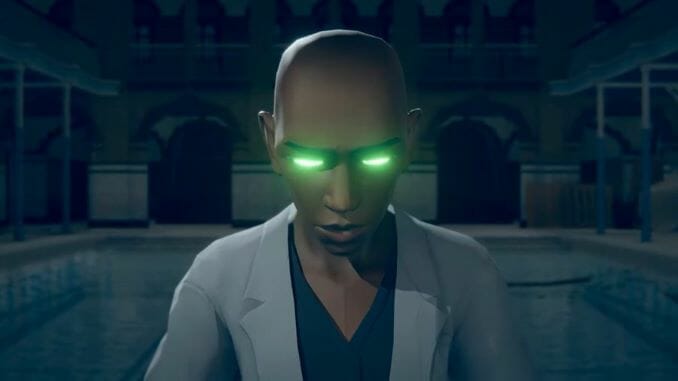Last Stop‘s Fragmented Narrative Is Its Downfall

When Pete and Sam see the green glowing portal in front of them, they are faced with a decision. Either they jump through the portal, not knowing what’s on the other side, or stay put and be arrested by pursuing police. With little time to spare, Sam decides to enter the portal, leaving Pete behind while calling him a coward. No sooner does she enter the portal that it vanishes, leaving Pete and the newly arrived police befuddled.
This introduction to Last Stop raises multiple questions for players to ponder while they settle in. But it also sneaks in a central theme of the game, that your decisions can have permanent consequences, and you need to be the one that makes them. While Last Stop explores the idea of how decisions affect a person, the game’s linear design makes this message feel contrary to the actual experience of playing it.
Personally, I’ve never been British. Not even once. Last Stop let me be British a total of three times, taking over the lives of three Londoners as their lives become extraordinary. There’s John Smith, a middle-aged single father who swaps bodies with his 20-something neighbor a la Freaky Friday; Meena Hughes, an equally middle-aged workaholic who finds herself in competition with a 20-something year old for a promotion at work; and Donna Adeleke, a teenager whose friend group falls into kidnapping a strange and silent man.
Each character’s story is told one chapter at a time, with the player being able to select which order to play them. While this system offers players a level of control over the narrative, it has the effect of reducing most of the game’s tension. In the final moments of the first chapter of Meena’s story, it’s revealed that she is keeping a marriage-ending secret from her husband. The way the game conveyed this secret was the kind of stellar mix of writing and gameplay that is only possible with this sort of interactive fiction. There were quite a few of these moments scattered throughout the game, but the cyclical nature of the chapters made it difficult to maintain my anticipation between them.
The game seems to even acknowledge this, offering a TV-style “Previously on Last Stop” recap before each chapter to refresh the player on what’s happening in that character’s story. These recaps, combined with each story only lasting about 20 minutes, makes the game come across as three separate TV shows set in the same universe but not sharing much else. Getting hooked on one character’s story in a chapter made getting through the other two feel like a chore.
-

-

-

-

-

-

-

-

-

-

-

-

-

-

-

-

-

-

-

-

-

-

-

-

-

-

-

-

-

-

-

-

-

-

-

-

-

-

-

-








































